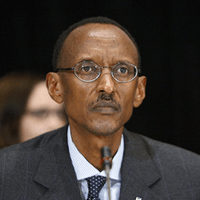KIGALI, Rwanda -- Young, radiant and eloquent, Clare Akamanzi is anything but modest as she outlines her government's plans for Rwanda's future.
As chief operating officer of the Rwanda Development Board, an institution mandated with fast-tracking private sector growth, Akamanzi is a rising star among Rwanda's best and brightest and the day-to-day brains behind one of the boldest development visions on the planet. Here, in this former conflict-ridden backwater best known to the world for its grisly 1994 genocide, officials are determined to forge Africa's first knowledge-based society -- turning away from small-scale agriculture and embracing services like information and communications technology, finance, minerals processing and higher education. Though Rwanda has looked to many countries for inspiration, the most commonly cited model is that of Singapore and other East Asian Tigers: peasant societies as late as the 1960s that became leaders in high-technology, joining the ranks of the world's affluent countries in little more than a generation.
"By 2020, we want to be a middle-income country," Akamazi tells World Politics Review from her breezy fifth-floor office, "and a country whose economy is driven by the services sector."

